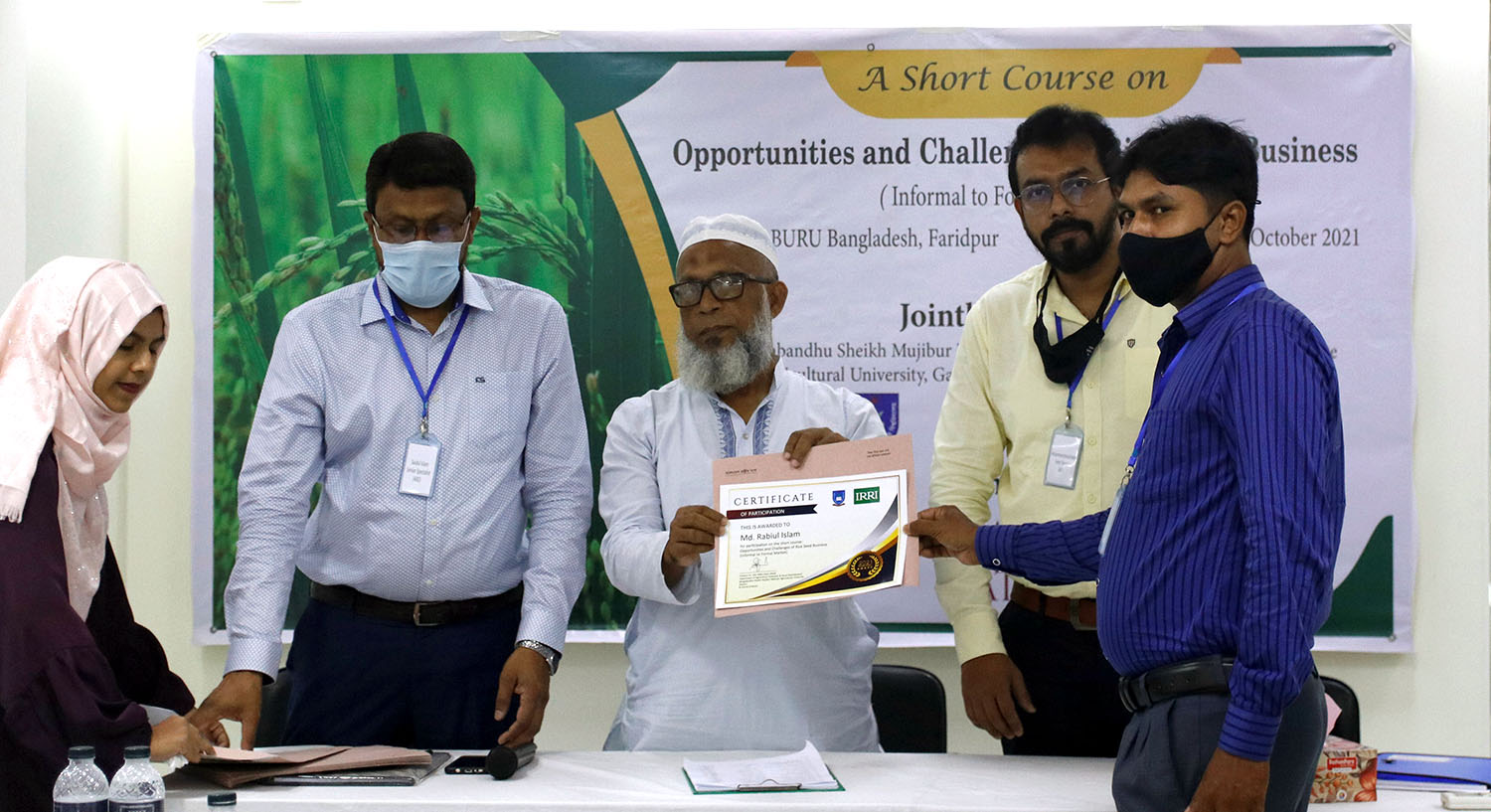BSMRAU and IRRI train government and NGO staff to develop rice seed entrepreneurship among women farmers in Bangladesh

The Bangabandhu Sheikh Mujibur Rahman Agricultural University (BSMRAU) in Gazipur and International Rice Research Institute (IRRI)-Bangladesh organized a workshop for government office (GO) and non-government organization (NGO) staff designed to help them guide women farmers become rice seed entrepreneurs.
Held on 18 September at the Rural Development Academy in Bogura and Buro and on 04 October 2021 in Faridpur, Opportunities and challenges of rice seed business-Informal to formal market was tailored for GOs and NGOs personnel to comprehend the scope and challenges of increasing rice production system in the country. The training was designed to help the participants play “partner-guardian” roles in enabling women farmers groups establish quality rice seed business until they become capable of managing their affairs independently.
In doing so, women farmers are expected to increase the availability of quality rice seeds and promising varieties at the farm level, minimize the gap in the demand and supply of promising rice varieties at the community level, and help ensure food security.
The course was coordinated by Dr. Md. Saiful Islam Afrad from the BSMRAU Department of Agricultural Extension and Rural Development.
IRRI, under the One rice breeding programme in collaboration with other complimenting initiatives like AGGRi conducts cluster demonstrations through women farmers’ groups. The groups were formed by IRRI’s networking partners of Bangladesh.
In 2020, the IRRI Bangladesh seed system Team conducted training programs for 30 women’s groups in 19 districts focused on helping a total of 900 women farmers strengthen their knowledge of new varieties and quality seed production skills. The women’s groups were provided with support to be seed producers including seed processing advice, quality foundation seed of promising varieties, fertilizer, and pesticide to meet the immense need for high-quality seeds in their communities. After the training, the women have started producing and marketing high-quality rice seed through the informal seed market where the big issue is the poor quality control.